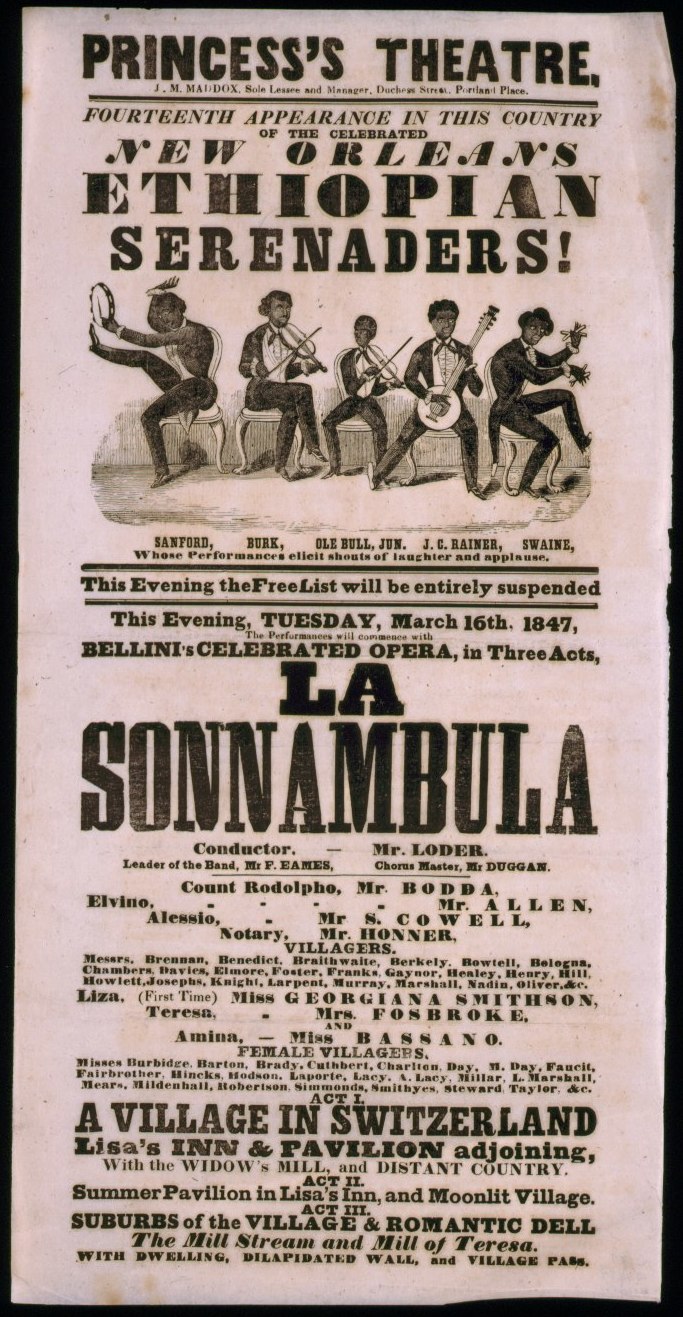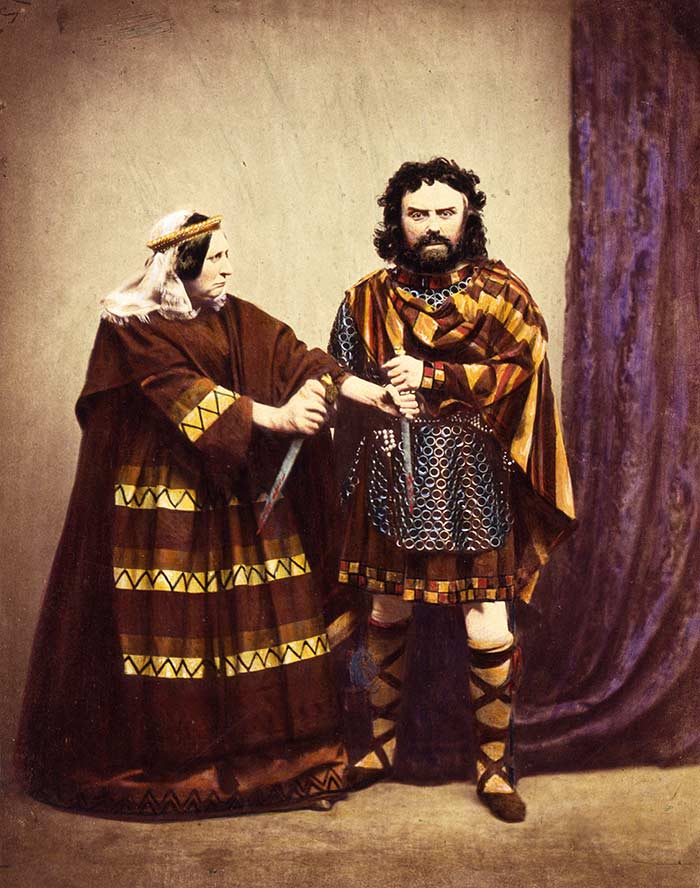|
The Trial Of Love
''The Trial of Love'' is an 1852 play by the British writer George William Lovell. It premiered at the Princess's Theatre in London on 7 June 1852. It was his final play, and ran for 23 nights. The cast featured Charles Kean Charles John Kean (18 January 181122 January 1868), was an English actor and theatre manager, best known for his revivals of Shakespearean plays. Life Kean was born at Waterford, Ireland, a son of actor Edmund Kean and actress Mary Kean (''ne ... and Ellen Kean.''Dictionary of National Biography, Volume 34'' p.173 References Bibliography * Nicoll, Allardyce. ''A History of Early Nineteenth Century Drama 1800-1850''. Cambridge University Press, 1930. * Stephen, Leslie & Lee, Sidney. ''Dictionary of National Biography, Volume 34''.Smith, Elder, & Company, 1893. 1852 plays West End plays British plays Plays by George William Lovell {{19thC-play-stub ... [...More Info...] [...Related Items...] OR: [Wikipedia] [Google] [Baidu] |
George William Lovell
George William Lovell (1804 – 13 May 1878) was an English dramatist and novelist. His most successful play was '' The Wife's Secret'', staged at the Haymarket Theatre with Charles Kean and his wife Ellen in the principal roles, and revived several times. Life Lovell was for many years secretary of the Phœnix Insurance Company, but devoted his leisure to writing plays. His first play was ''The Avenger'', produced at the Surrey Theatre in 1835, when Samuel Butler represented the chief character. This was followed by ''The Provost of Bruges'', with William Macready as the hero, at Covent Garden in February 1836. The play was founded on ''The Serf'', a story in Leitch Ritchie's ''Romance of History'', and attained great popularity. A novel, ''The Trustee'', appeared in 1841, and further advanced Lovell's literary fame; '' Love's Sacrifice, or the Rival Merchants'', a five-act drama, was brought out at Covent Garden in September 1842, under Charles Kemble's management, and the come ... [...More Info...] [...Related Items...] OR: [Wikipedia] [Google] [Baidu] |
Princess's Theatre, London
The Princess's Theatre or Princess Theatre was a theatre in Oxford Street, London. The building opened in 1828 as the "Queen's Bazaar" and housed a diorama by Clarkson Stanfield and David Roberts. It was converted into a theatre and opened in 1836 as the Princess's Theatre, named for then Princess Victoria before her accession as queen. After an unsuccessful series of promenade concerts, alterations were made on the interior, and the theatre was reopened on 26 December 1842 with Vincenzo Bellini's opera ''La sonnambula''. The theatre, by now under the management of John Medex Maddox, presented operas and other entertainments, such as General Tom Thumb. The theatre is best remembered for Charles Kean's Shakespeare revivals, beginning in 1849 and continuing for ten years. Kean presented these in lavish and well-researched "authentic" productions and also presented French drama. Dion Boucicault became the theatre's leading actor, and Ellen Terry and Henry Irving got their s ... [...More Info...] [...Related Items...] OR: [Wikipedia] [Google] [Baidu] |
London
London is the capital and largest city of England and the United Kingdom, with a population of just under 9 million. It stands on the River Thames in south-east England at the head of a estuary down to the North Sea, and has been a major settlement for two millennia. The City of London, its ancient core and financial centre, was founded by the Romans as '' Londinium'' and retains its medieval boundaries.See also: Independent city § National capitals The City of Westminster, to the west of the City of London, has for centuries hosted the national government and parliament. Since the 19th century, the name "London" has also referred to the metropolis around this core, historically split between the counties of Middlesex, Essex, Surrey, Kent, and Hertfordshire, which largely comprises Greater London, governed by the Greater London Authority.The Greater London Authority consists of the Mayor of London and the London Assembly. The London Mayor is distinguished fr ... [...More Info...] [...Related Items...] OR: [Wikipedia] [Google] [Baidu] |
Charles Kean
Charles John Kean (18 January 181122 January 1868), was an English actor and theatre manager, best known for his revivals of Shakespearean plays. Life Kean was born at Waterford, Ireland, a son of actor Edmund Kean and actress Mary Kean (''nee'' Chambers). After preparatory education at Worplesdon and at Greenford, near Harrow, he was sent to Eton College, where he remained three years. In 1827, he was offered a cadetship in the East India Company's service, which he was prepared to accept if his father would settle an income of £400 on his mother. The elder Kean refused to do this, and his son determined to become an actor. He made his first appearance at Drury Lane on 1 October 1827 as Norval in Home's ''Douglas'', but his continued failure to achieve popularity led him to leave London in the spring of 1828 for the provinces. In Glasgow, on 1 October in that year, father and son acted together in Arnold Payne's ''Brutus'', the elder Kean in the title-part and his son as Tit ... [...More Info...] [...Related Items...] OR: [Wikipedia] [Google] [Baidu] |
Ellen Kean
Ellen Kean (12 December 1805 – 20 August 1880) was an English actress. She was known as Ellen Tree until her marriage in 1842, after which she was known both privately and professionally as Mrs Charles Kean and always appeared in productions together with her husband. Biography Early years Ellen Kean was born Eleanora Tree, the third of four daughters of Cornelius Tree, an official of the East India Company in London. Her three sisters became actresses, but, unlike Ellen, retired from the stage when they married. Her professional stage debut was in a musical version of ''Twelfth Night'' in London in 1822 as Olivia alongside her sister Maria as Viola.Wilson, M. Glen"Kean, Eleanora (1805–1880)" ''Oxford Dictionary of National Biography'', Oxford University Press, September 2004; online edition, January 2008, accessed 25 May 2009. She gained experience touring in the provinces, and from 1826 was a regular member of the companies at the Drury Lane and Haymarket Theatres, ... [...More Info...] [...Related Items...] OR: [Wikipedia] [Google] [Baidu] |
1852 Plays
Year 185 ( CLXXXV) was a common year starting on Friday (link will display the full calendar) of the Julian calendar. At the time, it was known as the Year of the Consulship of Lascivius and Atilius (or, less frequently, year 938 ''Ab urbe condita''). The denomination 185 for this year has been used since the early medieval period, when the Anno Domini calendar era became the prevalent method in Europe for naming years. Events By place Roman Empire * Nobles of Britain demand that Emperor Commodus rescind all power given to Tigidius Perennis, who is eventually executed. * Publius Helvius Pertinax is made governor of Britain and quells a mutiny of the British Roman legions who wanted him to become emperor. The disgruntled usurpers go on to attempt to assassinate the governor. * Tigidius Perennis, his family and many others are executed for conspiring against Commodus. * Commodus drains Rome's treasury to put on gladiatorial spectacles and confiscates property to suppor ... [...More Info...] [...Related Items...] OR: [Wikipedia] [Google] [Baidu] |
West End Plays
West or Occident is one of the four cardinal directions or points of the compass. It is the opposite direction from east and is the direction in which the Sun sets on the Earth. Etymology The word "west" is a Germanic word passed into some Romance languages (''ouest'' in French, ''oest'' in Catalan, ''ovest'' in Italian, ''oeste'' in Spanish and Portuguese). As in other languages, the word formation stems from the fact that west is the direction of the setting sun in the evening: 'west' derives from the Indo-European root ''*wes'' reduced from ''*wes-pero'' 'evening, night', cognate with Ancient Greek ἕσπερος hesperos 'evening; evening star; western' and Latin vesper 'evening; west'. Examples of the same formation in other languages include Latin occidens 'west' from occidō 'to go down, to set' and Hebrew מַעֲרָב maarav 'west' from עֶרֶב erev 'evening'. Navigation To go west using a compass for navigation (in a place where magnetic north is the same dire ... [...More Info...] [...Related Items...] OR: [Wikipedia] [Google] [Baidu] |
British Plays
British may refer to: Peoples, culture, and language * British people, nationals or natives of the United Kingdom, British Overseas Territories, and Crown Dependencies. ** Britishness, the British identity and common culture * British English, the English language as spoken and written in the United Kingdom or, more broadly, throughout the British Isles * Celtic Britons, an ancient ethno-linguistic group * Brittonic languages, a branch of the Insular Celtic language family (formerly called British) ** Common Brittonic, an ancient language Other uses *''Brit(ish)'', a 2018 memoir by Afua Hirsch *People or things associated with: ** Great Britain, an island ** United Kingdom, a sovereign state ** Kingdom of Great Britain (1707–1800) ** United Kingdom of Great Britain and Ireland (1801–1922) See also * Terminology of the British Isles * Alternative names for the British * English (other) * Britannic (other) * British Isles * Brit (other) * Briton (d ... [...More Info...] [...Related Items...] OR: [Wikipedia] [Google] [Baidu] |


